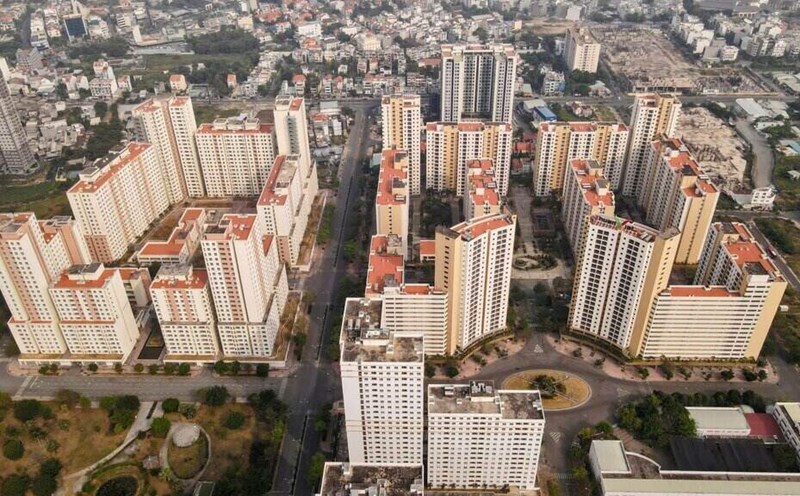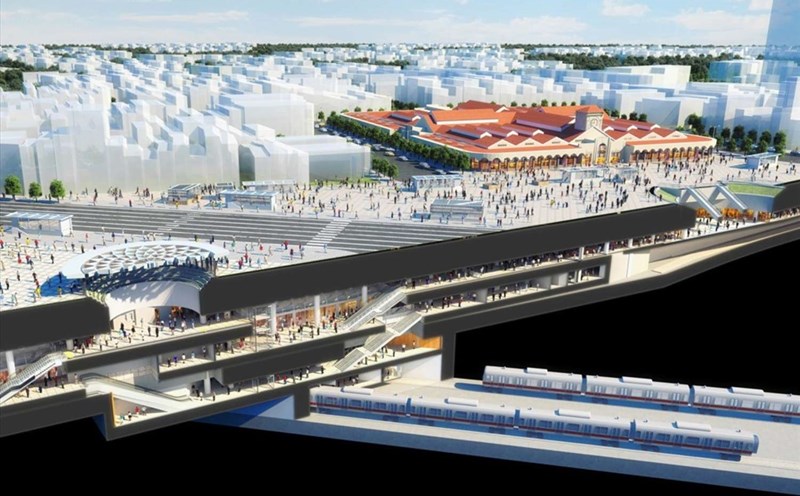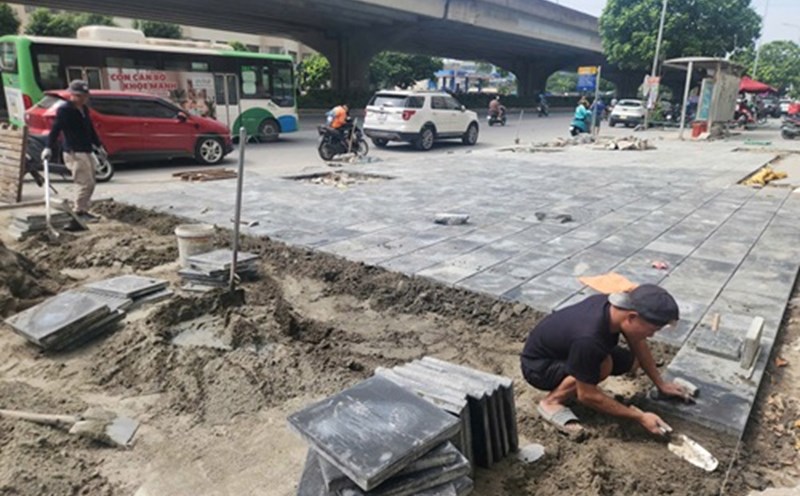According to the Vietnam Institute for Real Estate Market Research and Evaluation (VARS IRE), in the period of 2023-2025, the apartment market in Vietnam will witness a strong price increase trend, continuously establishing new price levels in large cities, both in the primary and secondary markets.
In the third quarter of 2025, the average primary commercial apartment selling price will reach about 78 million VND/m2, of which more than 30% of new supply will be priced from 100 million VND/m2 or more. In Hanoi, the average price has reached 95 million VND/m2, with more than 43% of new supply exceeding 120 million VND/m2. Ho Chi Minh City recorded an average of 91 million VND/m2, lower than Hanoi due to additional supply from suburban areas at lower prices.
Notably, many projects have increased prices from a few hundred million to more than 1 billion VND/unit in a short time, although the quality of the works and surrounding infrastructure has not changed significantly. In particular, in Hanoi, the situation of projects with prices up to hundreds of millions of VND/m2 has become popular - a phenomenon that has never been recorded in previous stages.
VARS IRE data shows that the apartment price index in Hanoi, Da Nang and Ho Chi Minh City has maintained a continuous increase in the past three years. As of the third quarter of 2025, compared to 2019, apartment prices have increased by 96.2% in Hanoi, 77.1% in Da Nang and 56.9% in Ho Chi Minh City.
VARS IRE stated that the continuous increase in real estate prices stems from many intertwined reasons, including imbalance between supply and demand, increased land use costs, legal problems and delays in project implementation.
To regulate the market, VARS IRE proposes a series of synchronous solutions, focusing on unblocking supply, regulating demand and perfecting management mechanisms.
Regarding supply, the State needs to speed up legal clearance for projects, ensuring implementation progress to avoid capital increase costs. The process of land access, site clearance, investment licensing and construction needs to be shortened and transparent, helping businesses save costs, shorten project preparation time and supplement supply to the market earlier.
The mechanism for determining land use fees also needs to be completed in a transparent, stable, and practical manner. Allowing the extension of the schedule or subdivision of financial obligations will help reduce capital pressure for businesses. At the same time, there should be separate preferential policies for social housing projects and affordable housing, encouraging businesses to participate in developing this segment.
VARS IRE also emphasizes expanding opportunities for small and medium-sized enterprises to participate in the market through a public and transparent auction and bidding mechanism. Social housing development policies need to be reviewed and breakthroughs are added to meet the increasing housing demand, especially in large cities. In addition, the State should consider establishing a special incentive mechanism for affordable commercial housing projects, linked to the average income of each locality, helping to increase the affordable housing supply for people.
On the demand side, VARS IRE proposes to synchronously develop infrastructure in suburban areas and industrial parks in provinces to attract young laborers, reduce population pressure and housing demand in large cities. At the same time, it is necessary to build a professional rental market, complete the legal framework, tax and credit incentives for rental housing projects, encourage transparent and sustainable management and operation services.
From a management perspective, VARS IRE proposes to establish a National Data Center on real estate and land use rights managed by the State. This system will help standardize and make information transparent, support management agencies to effectively monitor transaction performance, prevent speculation, price inflation and money laundering.
Along with that, there needs to be a credit regulation mechanism in the direction of prioritizing capital for projects to serve real housing needs, while coordinating policies between markets such as real estate, stocks and gold to ensure capital flows are allocated appropriately, avoiding the phenomenon of money flow concentrating too much on real estate.
In addition, VARS IRE believes that to stabilize in the long term, it is necessary to strengthen policies to support the production - business sector, control input costs, expand access to credit capital, apply a reasonable mechanism for extending, deferring or reducing taxes - fees during difficult times.
According to VARS IRE, if there are no synchronous and timely regulatory measures, real estate prices may continue to escalate, making the dream of settling down for middle-income people increasingly distant. Building a transparent, balanced and sustainable market is not only an immediate requirement but also a key factor for the stable development of the economy.











